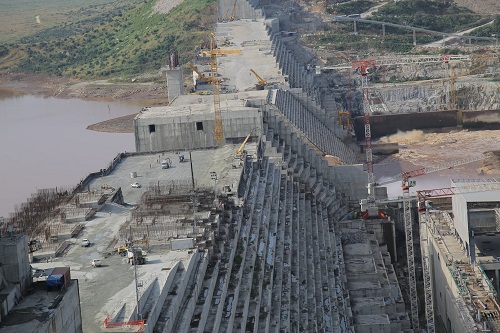
The African continent appears to be confronted with a plethora of problems and multifaceted challenges, ranging from peace, security, and stability to low economic and social development, the intensification of extremism and fundamentalism, as well as climate-related challenges. In this regard, it has become a matter of concern for both the international community and the African leaders. Hence, such growing concerns have become the driving forces behind the slogan “African solutions to African problems,” an axiom that is a source of pride for the continent as well as a means of demonstrating Africa’s independent conflict resolution mechanisms in which partners play a supportive role.
Analysts, politicians, scholars, and civil society leaders in the continent are increasingly convinced that this African approach, unlike the past interventionist and dictational approach from the west, is a remedy to African problems. It is clear that Africans possess the requisite tradition, skills and expertise to overcome the continent’s multifaceted challenges. Even if it is difficult to thoroughly identify the root causes of Africa’s problems and their remedies, the slogan “African solutions for African problems” should be employed to empower Africans and placed Africa’s destiny in the hands of Pan-Africanist generations.
Ethiopia and its faith in ‘African solutions’
Ethiopia, as an icon and one of the pioneers of pan-Africanism, has indeed believed in African solutions to African problems, as shown once again by its unwavering determination to resolve the Nile dispute solely through the African Union leadership. For Ethiopians, they have always been confident in the charm of black people’s power. Ethiopians demonstrated this self-efficacy to tackle callous colonizers in the past. The outcome of the Adwa battle in this regard has been serving as the beacon of hope for black people’s independence. And the current and firm stance on the African solutions to the Nile’s dispute exhibited today by Ethiopia shows that the unbreakable and self-reliant African spirit has been kept intact through successive generations.
Nevertheless, Ethiopia’s unwavering faith in Africans and their impartial judgment to solve the GERD dispute has been the major obstacle for Egyptians who assumed to be a pan Arabic; given that its official name is the Arab Republic of Egypt and a member of the Arab league.
Egypt’s vigorous attempt to solicit the intervention of their guardians on the GERD negotiation, as well as their repeated attempts to take the negotiation away from the African Union leadership, and Sudan’s hypocrisy in following its northern neighbor’s ambition in advocating foreign intervention, on the other hand, is nothing more than a betrayal to the spirit of Pan Africanism.
Ethiopia, on the other hand, is mesmerizing in its steadfast reliance on African solutions to resolve the Nile dispute, despite being confronted with a slew of enemies who have formed cozy alliances with entities hostile to Ethiopia’s nation and the well-being of the continent. In spite of these challenges that it is facing, Ethiopia shall prevail with the support of the Pan Africanist brothers.
GERD and the AU-led process
Despite Cairo and Khartoum’s constant doubts about the AU-led process’s performance, the GERD negotiations have seen commendable achievements, and Ethiopia is confident that a binding agreement on the dam’s filling and operation is a reachable target in the near future if and only if Egypt and Sudan cooperate in good faith to hammer out the remaining few issues.
Ethiopia, with its resolve to maintain the full ownership of the process by the three countries and the integrity of the AU-led process, agreed to accept the role of observers (South Africa, EU and USA) to share expertise when jointly requested by the three countries. On the other hand, Egypt’s and Sudan’s quest to grant the observers the same role as the AU in the status of a mediator, would not help to enhance the performance of the AU-Led process, but on the contrary, undermine the role of the AU.
This intentional action would play down the African judgment as insufficient and ineffective in solving the Nile issue and has far reaching consequences on the ability and capacity of the African mantra, which Egypt and Sudan were expected to subscribe to.The incessant call for the US and the EU to appear on the mediator’s scene by Egypt and Sudan proves that the countries hardly believe in African solutions to solve African problems and they deliberately ignore their responsibility to protect the interest of African aspirations.
If we let Egypt and Sudan invite the EU and USA to intervene in the Nile dispute, we will have no guarantee that they will not intervene in the matters of Victoria and else in the near future. Besides, it has continental security concerns and is capable of crippling our inherent conflict resolution mechanisms. Unless we Africans are willing to open the door for outsiders to demonstrate their neo colonial ambitions on the domestic matters of Africans and appreciate subsequent belligerent interference in the future, we need to stand together and protect our values and conflict resolution mechanisms from undue interference.
It is always perplexing why we tend to call for foreign interventions while African people and their leaders have the ability to solve their own difficulties with their own remedies. If Americans or the EU didn’t crave an African intervention to solve their own problems, there wouldn’t be a reason for Africans to adhere to foreign alternatives!
I believe it is time to say enough is enough for those who have fallen out of the grace of the Spirit of Pan Africanism. If we fail to prove that we are capable of solving our own problems, such as the dispute over GERD, we are heralding that our mantra of “African solution to African problems” is simply a pipe dream.
I am convinced that African solutions to African problems should be the everlasting slogan of all Africans at all times. As long as Africans aspire to fulfill the promises of the Pan African spirit, clinging to our solutions is walking in the footsteps of the wise Pan Africanist fathers who have paid the ultimate price to deliver our future from the hands of colonialists. Besides, foreign alternatives are not feasible in Africa since they usually tend to be imposed on Africans. And the fact is that, throughout African history, external involvement has resulted in more harm than benefit for African people, with externals adopting a double-standard approach guided by monetary interest.
As a result, Egypt, Ethiopia, and Sudan should follow the lead of the African Union in advancing the negotiations to their conclusion. Since adding external parties will further complicate the chance of reaching an agreement shortly, the three countries must cling to the process till the end. And, in this regard, Ethiopia’s unwavering stance to protect the spirit of Africanism should be applauded and supported by all Africans.
BY EYOB BELACHEW
The Ethiopian Herald May 23/2021





